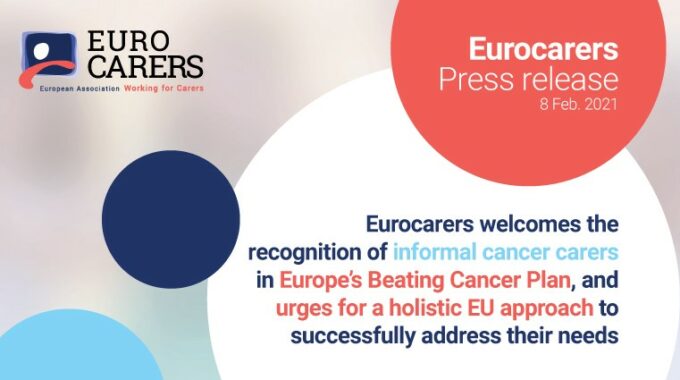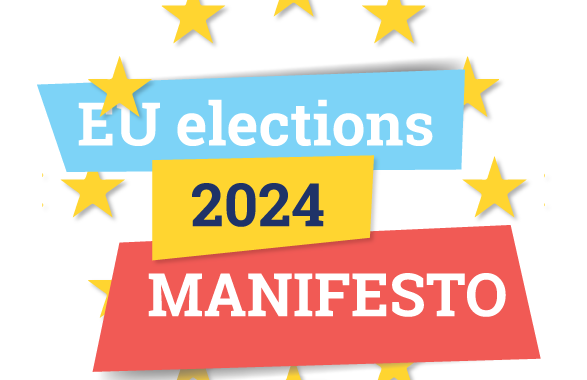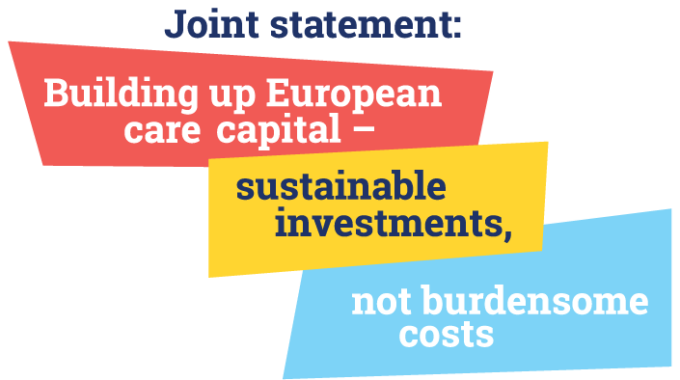
Eurocarers welcomes the recognition of informal cancer carers in Europe’s Beating Cancer Plan, and urges for a holistic EU approach to successfully address their needs
Eurocarers welcomes the adoption of the European’s Beating Cancer Plan this 3rd February, in particular the clear recognition of the essential role of informal carers “to support and provide care to cancer patients”.
Together with patient organisations, Eurocarers aims to raise awareness and shine the spotlight on informal carers across all ages and backgrounds who are, unfortunately, still too often invisible and therefore forgotten. We call for more inclusive societies that support, protect and empower carers and allow them to choose freely whether – and to what extent – they want to be involved in caregiving.
We welcome the Europe’s Beating Cancer Plan’s specific recognition of the often-negative impact of caring on the life of carers in terms of their work-life balance, income, but also their physical and mental health and wellbeing, including the perpetuation of gender-related inequalities when it comes to care responsibilities.
Informal carers, according to research, provide over 80% of all care in Europe, with women providing approximately two-thirds of care. Their contribution is essential as our long-term care systems would not have the capacity to address the entirety of the need for care in the EU, in particular in the current context of demographic change.
We recognise the important next steps and welcome the focus on a full and swift implementation of the Work-Life Balance (WLB) Directive. However, we urge for a more ambitious and comprehensive approach in order to capture all the aspects of the caregiving experience. “While the adoption and transposition of the WLB Directive is a great milestone for our movement, it only addresses carers in conventional employment, thereby overlooking the crucial needs of many people, including older carers (+65); carers in other forms of employment (independent, freelancing etc) or young carers (such as children of a parent with cancer), said Stecy Yghemonos, Director of Eurocarers”. Additionally, the right to 5 days of carer’s leave is clearly insufficient to adequately meet the needs of someone providing care to a cancer patient.
In its recent analysis on the state-of-play of EU countries’ compliance with the WLB Directive, Eurocarers highlighted that while the legislation in place in a majority of countries already complies with the Directive, existing benefits and entitlements are too often provided at a minimal level . In light of this, we need to set higher ambitions and ensure that ALL informal carers can access leave for caring in accordance to their actual needs in terms of duration, eligibility, flexibility and financial compensation.
Beyond work-life balance, addressing carers’ needs will only be achieved through a comprehensive strategy, spanning across various policy areas having a bearing on their situation. Eurocarers has adopted a blueprint —a ten-step strategy for carer-friendly societies— of what such a strategy for carers should entail, and we will now build on this work by developing a portfolio of best practices and policies for informal carers.
Some countries or regions have already begun to lay the foundations of carer-friendly societies. The EU must build on these promising developments to facilitate access to social rights and adequate levels of social protection of this vulnerable group whose role is so crucial, and thereby to demonstrably improve the lives of 10 to 20% of the total European population.
Eurocarers commends the European Parliament for making recently a first bold and ambitious attempt to lift the needs of informal carers higher up on the EU policy agenda.
For more information and access to background documents:
White Paper on Cancer Carers, Eurocarers (https://eurocarers.org/publications/joint-white-paper-on-cancer-carers-with-ecpc/) 2017
Eurocarers Cancer Carers Toolkit, 2018 (https://www.eurocarers-cancer-toolkit.eu/)
Implementation of Work-Life Balance Directive and new Carers’ Rights – Where do we stand? Eurocarers, 2020 (https://eurocarers.org/publications/implementation-of-work-life-balance-directive/)
The document “Enhancing the Rights of Informal Carers – Eurocarers’ Response to the Consultation on the Social Pillar Action Plan” is available through the Eurocarers website : (https://eurocarers.org/publications/enhancing-the-rights-of-informal-carers/)
‘Enabling carers to care – A Strategy to support and empower informal carers across Europe’ as well as its accompanying explanatory note, Eurocarers, 2019 (https://www.eurocarers.org/EU-Strategy-to-support-and-empower-informal-carers-across-Europe)
We owe carers much more than applause. Policy Proposal for an EU carer strategy EPP Group in the EP, 2021 (www.eppgroup.eu/newsroom/news/we-owe-carers-much-more-than-applause)
European Parliament resolution of 21 January 2021 on the gender perspective in the COVID-19 crisis and post-crisis period (2020/2121(INI)) (https://www.europarl.europa.eu/doceo/document/TA-9-2021-0024_EN.htm)
For additional information about this or other initiatives led by the Eurocarers network, please contact Stecy Yghemonos at sy@eurocarers.org.





